A PANEL DISCUSSION ON CELEBRATING AFRICAN WOMEN, March 17, 2024, PART 1
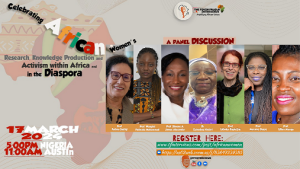
CELEBRATING AFRICAN WOMEN
To be an African is phenomenal. To be an African woman is even far more scintillating. In the spirit of celebrating Women’s History Month, I thought of Africa and, more importantly, the roots of the African identity. Several accounts have chronicled the African legends, the brave acts, the wars, the technologies, and remarkable characters, but not many have deliberately discussed the ancient and recurrent basic root and fiber of the African societies.
In close consideration of an undisputable factor upon which the African societies were built, one cannot but refer to African women’s positions in African society. The proper light of history was not directed towards African women until the 1960s when African history started having its own political and institutional independence. However, it is important to ensure that women in Africa or of African origin are greatly appreciated for their remarkable contributions.
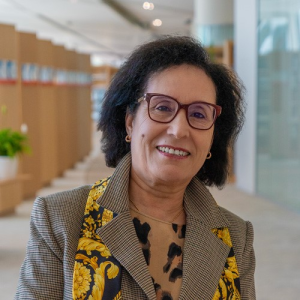
Photo: Professor Fatima Sadiqi
The African identity and its common and most important feature are the dynamic culture that has set it apart from other parts of the world. Often, the cultural practice of the society is quickly dismissed by foreign observers because of what I could say to be the inability to comprehend the complexity of African cultures. African cultures go to the root of their politics, social order, economics, and every ramification conceivable in African society. Africans are culturally conscious and measure both success and failure on cultural scales.
However, as important as these cultures may seem to every society, they are held and strengthened by the doggedness of the African women who form the agency of the African being. Aside from this, there is historical evidence of women defending the territorial integrity of their respective societies in Africa and carrying their national image to a global reputation. We have heard the stories of the Dahomey Amazons who rescued the integrity of their society, the legendary Queen Nzinga of Ndongo and Matamba, the Aba Women War of 1929, and other instances that have set African women in the right position in the defense of the African integrity.
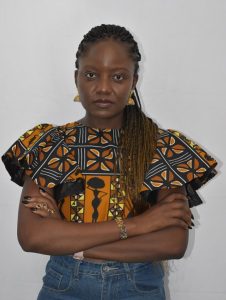
Photo: Professor Wunpini Fatimata Mohammed
Well, we might not live in a world of outright societal takeover by wars and ammunition, but intellectual warfare in the international space has never been ameliorated. For many years, the continent has been charged with the duty of image redemption from the biased disposition about the state of Africa. The originality, philosophical orientations, achievements, epistemological capacities, economic independence, political maturity, and educational foundation have continually been put into doubt for many hundreds of years. Hence, the continent has woken up to the duty of changing perspectives through knowledge production and displaying the intellectual prowess of the continent through intentional research and academic engagements.
Just like in the old times, African women have found ways to blaze the trails of intellectualism and reposition Africa from a global perspective. One of the very important African women in contemporary times is Chimamanda Ngozi Adichie. Although she is not in academia, she is an intellectual, and through her fictional works, she has been able to retell African stories, events, and perspectives from the African angle. She has been so successful in catching global attention and a global audience through her approach to African stories. Her works create some intellectual background for further engagement of African elements and features from non-African observers. Through her lens, it is easy to reposition the biased understanding of African societies and provide insights into the conceptualization of African peculiarities.
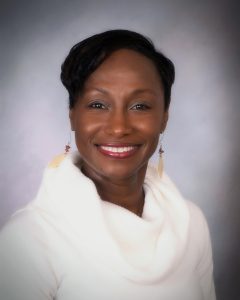
Photo: Professor Simone A. James Alexander
Wangari Muta Maathai is a phenomenon in the studies of environmental justice, African agricultural development, and knowledge building. She received the Nobel Peace Prize and became the first woman in Africa to be so recognized. Her Doctorate in Biology made her the first woman in Central and Eastern Africa to receive a doctorate and the first woman from Kenya. Maathai established the Green Belt Movement to discourage deforestation processes in Africa and encourage women to plant more trees to rescue the green life of the continent. Her movement has since widened its influence across the continent and has achieved the planting of thirty million trees so far across Africa. She has created a legacy for the future of women in African scientific inquiries.
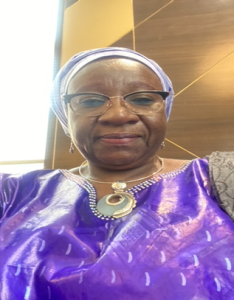
Photo: Dr. Zeinabou Hadari
Amina Mama is another African female scholar who has set the pace for African perceptions and knowledge production. She has led the establishment of key African institutions and feminist knowledge production outlets, such as the African Gender Institute at the University of Cape Town, which she led for ten years, and the Feminist Africa journal, the only one of its kind on the continent. Mama’s research provides valuable insights into understanding the African postcolonial era, the essence and characters of militarism, and discussions on various gender-related matters. She has been able to distinguish the struggle against women’s oppression compared to similar efforts in Europe. She is convinced that feminism could be said to have originated from the continent and that feminism in other places did not emerge without some political premonitions.
Grace Alele-Williams is a foremost icon of the Nigerian academy and has paved the way and inspired women in the academic circle. As the Vice Chancellor of the University of Benin, she was the first to be so honored. She has a strong disposition in favor of women’s access to science and technology and the advancement of mathematical studies in Africa.

Photo: Professor Lidwien Kapteijns
African women have created distinct developmental achievements for Africa in their respective engagements. Tebello Nyokong of South Africa was remarkable for her role in the development medicine and setting the pace in air ambulance in West Africa; Ncumisa Jilata is one of the most respected young neurosurgeons in the continent; Ameenah Gurib-Fakim was the first elected female president of Mauritania, and is also a scientist who has advanced the field of biodiversity science; and others whose achievements have been relevant to the advancement of knowledge production, development, science and technology on the continent. The efforts of these women have reshaped the image of Africa and the extent of global understanding of the capacities of Africans in general.
In recent times, one has seen the level of resilience of African women in ensuring that things are made to happen or to resist the unfavorable. Many of the calls to address global situations, including gender equality, affordable education, and other freedoms, have been championed by women without any form of fear or favor. This has happened both within and outside Africa. This resilience is traced to the duty to defend or represent one’s community or property in the face of adversity, which has been instilled in African women while growing up.
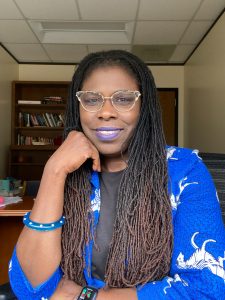
Photo: Professor Marame Gueye
African women also serve as the backbone of the African economy. African women have been stated to be more economically active in their respective countries than other women in other parts of the world. They form the largest set of farmers and entrepreneurs across African communities. African women feed the continent as they grow most of the food consumed across the continent and are the owners of not less than one-third of the businesses in the continent. African women constitute not less than 40 percent of the labor force for crop production. 25.9 percent of them have been said to be bearing the intention of starting their businesses or managing one.
Unfortunately, these efforts to improve the individual and national economy are not well appreciated, seeing that many of their services are not paid for and not appreciated properly. Their efforts are reflected in the economy but not financially accounted for. Women provide eighty percent of the caregiving services in Africa, but they are mostly not paid for these services. Statistics have stated that if women are paid for their caregiving contributions, it would contribute to about 10 to 30 percent of the GDP of any country. Most of the small and medium-scale businesses that, most importantly, care for the basic needs of the people are owned and managed by African women.

Photo: Professor Lilian Atanga
In addition, they have shown top-notch managerial expertise, heading both economic and financial portfolios of their countries and the world. Several of them have led businesses, corporations, and companies to the level of global relevance. Some have also played important roles in the politics of the global economy. Ngozi Okonjo-Iweala, the Director General of the World Trade Organization, is one of the respected individuals who has grown to be a global phenomenon. She had had a run with the World Bank and served as a federal minister in Nigeria before emerging as the Director General of the World Trade Centre.
This extends to national and international political leadership. Women have not just been holding positions but have been performing excellently well in their portfolios. Liberia elected the first female African executive head of state, Ellen Johnson Sirleaf, who not only led the country through a difficult post-war economic recovery but was able to prevent a regression into conflict against all odds. Amina J. Mohammed enjoys the status of being the United Nations Deputy Secretary-General while also heading the United Nations Sustainable Development Group. She and other people holding such remarkable positions have placed Africa properly and propelled it for revered considerations.
Even in the diaspora, African women have held different important leadership and social positions. Their leadership is often born out of the African conception of service, sacrifice, and collectivism, and their dedication to development cannot be underestimated. The European and American Parliaments, Mayorship, and other sensitive political positions have been trusted in the hands of Africans or women of African origin.
Unfortunately, the sacrifices of women in Africa and the diaspora are not properly appreciated in the right proportion. Many of them slave away on unpaid labor or earn peanuts in return for hard sacrifices. The seclusion of women, prohibition from public activities, discrimination, and other forms of limitations are clogs that would have allowed their chariots to save Africa from many of its problems.
To expand on the knowledge base on the various accomplishments of women, please join us on
Sunday, March 17, 2024
5 PM Nigeria // 11 AM Austin
Register and Watch:
https://www.tfinterviews.com/post/africanwomen
Join via Zoom:

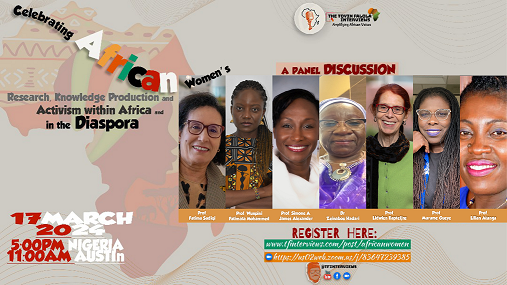












You must be logged in to post a comment.